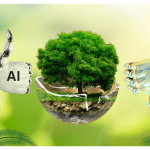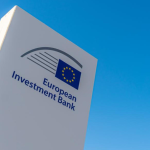Executive Summary
Kenya intends to implement significant policy changes and economic projects in 2025 in order to establish itself as Africa's preeminent center for innovation, technology and market expansion. Digital transformation, entrepreneurial assistance and business environment enhancement are important tactics. The economic policies and initiatives, impact estimates and recommendations will all be covered in this study.
Introduction and Background
Kenya's 2025 economic plans, which focus on structural change and climate resilience, seek to strike a balance between tech-driven growth and budgetary stability. This research is crucial for stakeholders like tech innovators and smallholder farmers to improve living standards, attract investment and create jobs nationwide.
Data and Analysis
Kenya’s Economic policies and Initiatives:
A) Debt management and fiscal policy
• Debt Management Strategy: By issuing medium- to long-term debt securities, the 2025 debt management plan seeks to deepen the domestic debt market, raise the maturity of public debt, and reduce the stock of Treasury bills.
• Medium-Term Revenue Strategy: By FY 2026/27, Kenya's Medium-Term Revenue Strategy seeks to increase the tax revenue to GDP ratio from 13.5% to 20% by concentrating on administrative and tax policy improvements.
B) Technology & Digital Economy
Initiatives: Kenya's National Fiber Network expansion aims to reduce internet costs, boost cloud adoption and potentially boost GDP. Implementations include green data centers, innovation hubs, funding for startups and cybersecurity measures.
Policy Frame-work: The Robotics and AI Bill 2023 stresses balanced regulation for innovation, the Technopolis Bill seeks to establish tech-centric metropolitan areas, and the ICT Authority Bill 2024 simplifies digital project governance.
C) Climate Action and Sustainability
Initiatives: BasiGo intends to launch electric buses in East Africa by 2026, while startups like GreenCharge are putting renewable energy ideas into practice. 40% of e-waste is to be collected in 2025, according to a planned national e-waste framework.
D) Agriculture Modernization
Climate-Smart farming and UK-Kenya Economic Partnership Agreement aim to increase yields and reduce food imports, while boosting horticulture exports by 18% in 2025.
Key Findings
Projected Impacts:
– By 2026, IMF program rigor could reduce the fiscal deficit to 4.6% of GDP.
– The goal of initiatives like Tatu City and Konza Technopolis as tech hubs is to diversify the economy.
– Job creation from renewable energy projects and technology hubs lowers unemployment rate.
– Renewable energy investments support the objectives of global sustainability.
– The digital economy's regulations regarding digital nomad visas draw in foreign talent and improve knowledge transfer.
– There will be an upsurge in creative and startup companies.
Recommendations
1) Enhance Public-Private Partnerships: Encourage cooperation for development and innovation.
2) Invest in Skills Development: To ensure a trained workforce, give education and training first priority.
3) Strengthen Cybersecurity: Preserve digital resources and foster confidence.
4) Encourage regional integration by gaining access to markets through regional trade agreements.
5) Assure Inclusive Growth: Put policies in place that provide fair advantages to economic growth.
References
CIO Africa
NEMA
Kenya News
Business Daily
Wikipedia
Kippra
Medium Term Revenue Strategy








